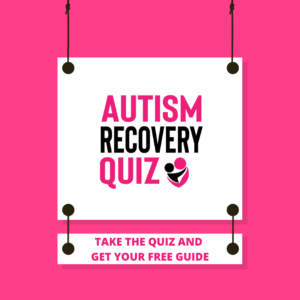Mitochondria give cells over 90% of their energy. Without proper energy cells cannot carry out their functions.
Mitochondrial Dysfunction vs Mitochondrial Disease
Mitochondrial dysfunction simply means that the mitochondria are not working correctly. Mitochondrial disease is the term used when the primary cause of mitochondrial dysfunction resides in the mitochondria. Mitochondrial disease is generally genetic. It can be inherited from either or both parents. A special type of mitochondrial disease is caused by mutations on the mitochondrial DNA, and is inherited only from the mother. When the primary cause of mitochondrial dysfunction resides outside the mitochondria, mitochondrial dysfunction is called “secondary” (to something else).
Symptoms of Mitochondrial Dysfunction
Cellular energy is necessary for the function of all cells, but is particularly critical for nerve and muscle. Both nerve and muscle are important in GI function, thus cyclic vomiting, constipation, diarrhea, poor GI mobility, and other digestive disorders are common. Additional potential complications of mitochondrial dysfunction include chronic fatigue, neuropathic pain, depression, autistic regression, seizures, hypoglycemia, visual and hearing difficulty, depression, anxiety, panic disorder, intellectual disability, and dysautonomia.
Mitochondrial Triggers
Mitochondrial dysfunction can be genetic, but even then, disease is often triggered by the environment. Viral infections are among the most common triggers of mitochondrial dysfunction. Additional potential triggers are other infections (e.g. lyme bacteria), vaccinations, toxins, anesthesia, and any other significant stressor. In order situations, mitochondrial dysfunction can be acquired. In fact, stroke and heart attack involve mitochondrial dysfunction, whereas cells are receiving insufficient oxygen for required energy metabolism. Many environmental toxins can poison mitochondria as well, including some pesticides.
Treating Mitochondrial Dysfunction
The good news is that mitochondrial dysfunction in general can be treated. In Dr. Richard Boles’ experience, about 80% of people with mitochondrial dysfunction improve on proper treatment, including people with autism. Of course, this requires a broad-based treatment approach with strong foundational aspects including good diet, supplements, exercise, adequate sleep, avoidance of environmental triggers, and more. Of particular importance is the combination and dosages of specific supplements including the bioavailable form of coenzyme Q10 (ubiquinol), L-carnitine, riboflavin (vitamin B2), vitamin C, alpha lipoic acid, vitamin D, and others.
Resources:
SpectrumNeeds mitochondrial supplement (powder form)
Ubiquinol from SpectrumNeeds (soft gel capsules)
Study by Richard Frye on autism and mitochondria
♥
Learn how to get the best results for
your child’s worst symptom of autism.
Take this quiz and find out how now.

Take the quiz so I can learn more about where you are on the autism recovery journey to understand how I can help you best. I’ll send you a guide to use now based on your quiz results, (plus further help from there so you learn the “how to” of all-natural autism recovery with an A-Z roadmap from a mom who has done it for her own son, even after she was told it could not be done.)
Take the quiz now at, NaturallyRecoveringAutism.com/Quiz
Follow Karen on Facebook!










